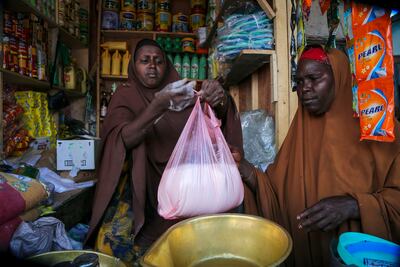Live updates: follow the latest news on Russia-Ukraine
French President Emmanuel Macron on Tuesday called on Russia to agree a solution at the UN to unblock Ukrainian grain exports and ease an emerging global food crisis.
Mr Macron said at the end of a two-day European summit in Brussels that he and German Chancellor Olaf Scholz had proposed such a solution for the port of Odesa to Russian President Vladimir Putin.
The summit heard from the chair of the African Union that t.
Russia, blamed by western powers for engineering the food crisis, said on Tuesday it was up to Ukraine to remove mines from coastal waters.
Foreign Minister Sergey Lavrov said the Russian navy was willing to secure safe passage to the Mediterranean and beyond if the necessary demining took place.
Ukraine said it too was exploring a possible UN-led operation involving the navies of partner countries.
Mr Macron said any deal with Russia at the UN would require guarantees for Ukraine that Moscow’s troops would not exploit a gap in coastal defences created by the opening of food corridors.
European Council president Charles Michel is planning to meet with UN Secretary General Antonio Guterres next week to explore how to export the grain via sea routes, an EU official said.
The talks on food security came after the European Union agreed to ban the majority of Russian oil imports, a breakthrough in its efforts to deprive the Kremlin of funding during its onslaught on Ukraine.
The overnight deal in Brussels will ban oil shipments by sea but leave pipelines open, a concession to the main holdout Hungary.

Ursula von der Leyen, the president of the European Commission, said the agreement would effectively cut off 90 per cent of Russian oil imports by the end of the year.
Kremlin ally Dmitry Medvedev, a former Russian president, responded on Tuesday that sanctions would not affect the political elite or fatally wound big business but were “directed precisely against the people of Russia”.
The EU said it would revisit the exemptions given to Hungary and other landlocked countries as soon as possible.
But several leaders said there was little prospect of sanctions being extended to gas, after haggling over oil described as “very stormy” by Poland threatened to undermine western unity over the war.
“This is an important step. Let’s stop there for the moment,” said Belgian Prime Minister Alexander De Croo.
Austrian Chancellor Karl Nehammer said a gas embargo would not be on the table in a possible seventh sanctions package.
The sixth package, which still needs final approval as a legal text, will also ban Russian ships from being insured in Europe and will cut more Russian banks out of international payments system Swift.
Denis Shmyhal, the Prime Minister of Ukraine, said he was grateful to European leaders for their support after the government in Kyiv had bemoaned the slow approval process.
EU leaders also agreed a four-point plan to end the dependency on Russian energy that has limited their freedom of action over Ukraine.
The strategy, which Ms von der Leyen wants to back with 300 billion euros ($321bn) of EU funds, rests on finding new oil and gas suppliers, expanding renewable energy, saving power and connecting up power grids.
Chancellor Scholz announced at the same summit that his country had made a deal with Greece to send infantry fighting vehicles so that Athens can forward its Soviet-era equipment to Ukraine.










































